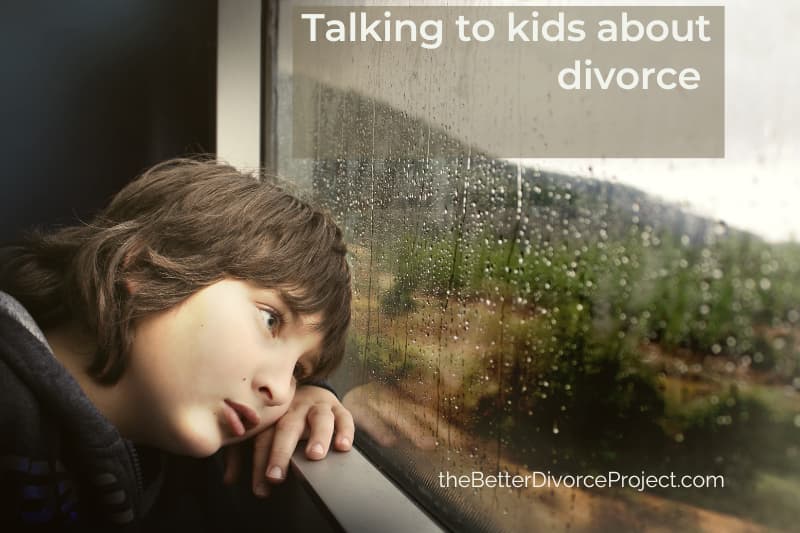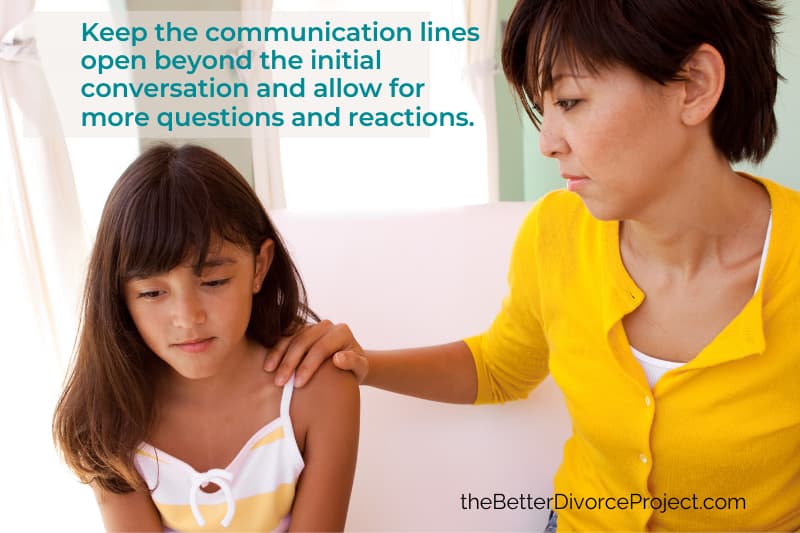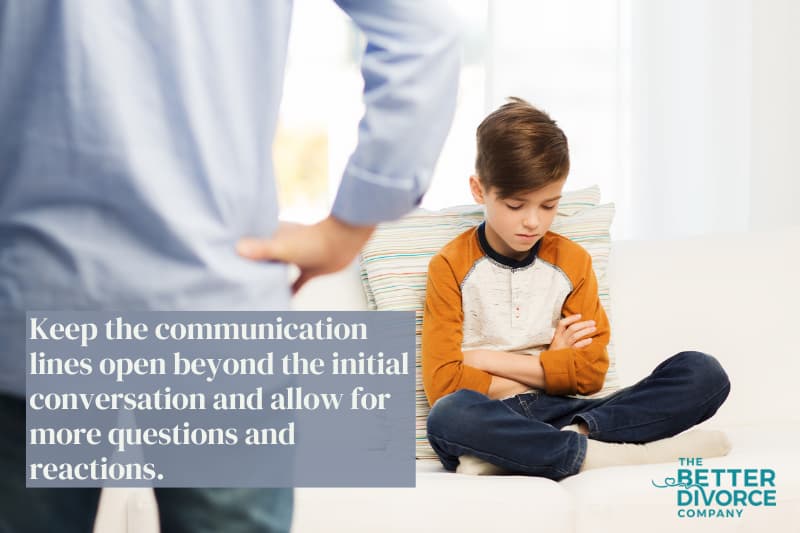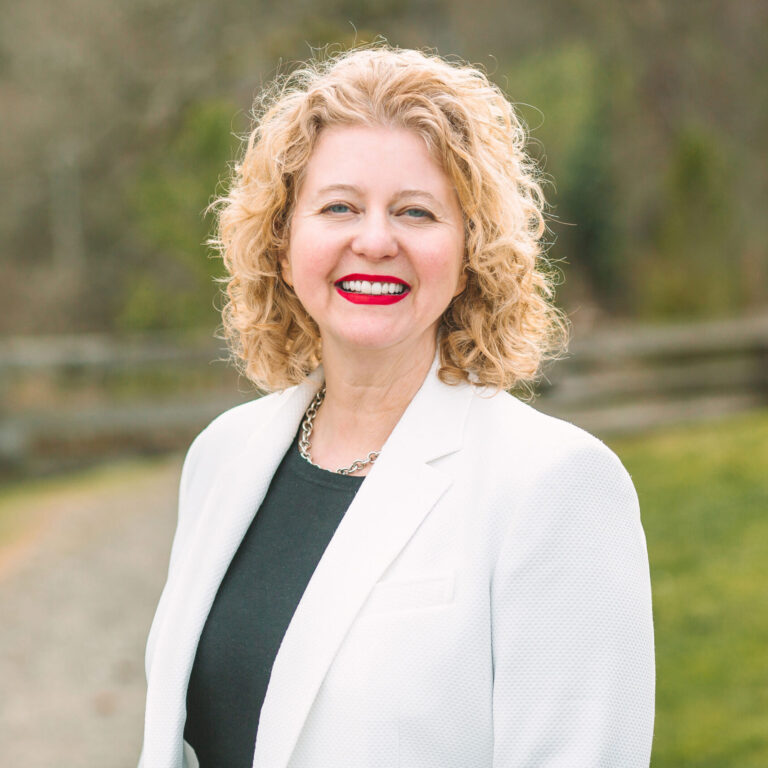Practical support, tools and strategies
Defining a smoother path for everyone
Creating a peaceful, dignified divorce
Talking to Children About Divorce
- Home
- Divorcing with children
- Talking to Children About Divorce
Talking to children about divorce starts from the first conversation
When talking to children about divorce, a lot of parents do not know where to start. Obviously, there is a right way and a wrong way to telling your kids about divorce.
Without overcomplicating matters, in a nutshell, kids need to hear 3 things and helping them cope with divorce starts from the first conversation. Include these 3 elements:
- Both of you love them.
- That the separation is not their fault.
- They'll still get to see both of you (assuming that is the case which it almost always is).
QUICK LINKS
Having separated or divorced parents does not carry the same kind of stigma it used to. For example, the average marriage in Canada lasts around 14 years with 42% of couples divorcing. Because it is so common, having divorced or separated parents does not have to be a big deal for kids.
After a transition period, it can be relatively easy for kids to understand, adjust, and accept new and different circumstances. Despite this, as parents and because we work so hard to raise our kids and protect them from harm, we often feel tremendous guilt when our marriage relationship fails. So this page is all about the process, easing the burden on you and your kids and creating a vision for a brighter future as a new version of your family.
Video: Talking to Children About Divorce
For many parents, talking to their children about divorce is one of their most painful moments of separation
Is divorce bad for children?
Talking to kids about divorce can be good news

When getting ready to start talking to your kids about divorce, one thing to consider is that it is highly likely that your separation and divorce is probably a really good thing for them.
Why would your separation be good for your kids, or is divorce bad for children, you ask?
Well, if you think about it, kids learn from their home environments.
If your marriage is toxic or desperately unhappy, and let’s face it, that is probably why you are not going to continue your marriage, what are you teaching your kids about the kinds of lives they should live?
If you end a relationship that is not working, you teach your kids that living in misery is unacceptable - creating a better home environment is.
Telling your kids about your separation can be a transitional moment, not only for you and your kids, but it can also impact your relationship with them in future. Although close relatives, peers and family friends can assist kids during this time, the initial conversation you have with them is key. How you approach your initial conversation with them and the subsequent conversations will greatly impact how your kids adjust and how your relationship will evolve with them.
Telling kids about divorce is more than one conversation
Your first conversation is really important, however, helping children cope with divorce will likely mean more than one conversation.
Remember that children learn the most by watching what we do, not so much by hearing what we say. So while your approach and your first conversation is important, what is even more important is your actions and behaviours before and after the conversation.
This means that even if your words aren’t perfect and if the first conversation doesn’t go exactly as you planned, what is more important is how loved and secure your children feel in their relationship with you and with their other parent. Still, as this conversation is one that your children will likely remember for the rest of their lives, it is important that you explain it as clearly and age-appropriately as possible.
Tips for talking to kids about divorce
When should you tell your child about divorce?
We have split up the conversations by age categories, however, you know your child’s unique personality and where they are in terms of their emotional and developmental maturity. You know your child best. Go with your heart to know what approach will be most effective with them. The following is only a guide with tips to help you plan how best to have the conversation.
Another thing to consider is that although it is not always possible, speaking to your kids with both of you present as parents is ideal. When it comes to your kids, an amicable divorce with a child assists them by reducing their stress levels and confusion and can help them absorb the information you are providing.
If you plan to speak to your kids, make sure you can communicate calmly and have an agreed plan in advance regarding how you will approach the conversation. Even if your plan does not go perfectly, how you act, react, and demonstrate a united front is the main part your kids will remember.
Also if you have children in different age groups, you might not want to have the initial conversation as a whole family. If you have older children and then children who are quite young, it may make sense for you to have the conversation in confidence with the older children first so that they can ask their more complex questions that younger children may not understand and then involve the older children when telling, the younger children.

Getting divorced
How to talk to toddlers / preschoolers about divorce
Those formative years from 0 to 5 and 6 years old are profoundly important for kids. Ensuring you maintain an environment where they feel safe and loved is key.
At one time it was thought that very young children are not as affected by divorce as older ones, but we disagree. The research supports what we say. Young children may not be able to understand or communicate what they are feeling as clearly as older kids, but they are likely the most impacted by disruption to their routine and environment.
When speaking to children about divorce at this age, it is best to keep the conversation quite simple and concrete, centred around what changes may happen for the child and what will remain the same.
For example, will you still be living together while divorcing? Of utmost importance to this age is the constant reassurance that they are loved, that it is not their fault, and that they will get to see both of their parents.
Reassure them that the safety and security that the child feels with each of you will not change, and they will still be just as loved and just as cared for. Following the conversation, a lot of physical and concrete reassurance will help the child feel more at ease with the new information. The reassurance will need to continue with each step of transition for the child, with special attention paid to the child’s specific needs from moment to moment.
Because young kids are highly dependent on their parents, if they have questions, those questions will likely revolve around themselves. Be patient. Answer their questions honestly while being age-appropriate.
Divorce with young kids
Telling a 6 to 11 year old about divorce
Children between the ages of 6 and 11 typically begin to have a more developed sense of feelings and are developing the ability to think beyond what affects only them. They are still not able to understand the more complex details surrounding decisions such as divorce, parenting-time, child custody and visitation schedules or decision-making, but they can generally express what they are feeling. They can even empathize with other people involved.
Another factor involved with this age group is that most often their world has been enlarged to include the school community and peers. Let your children’s teachers know of the changes in your home. If your child struggles through the transition, it will be helpful for their teachers and other caregivers to know the context.
Children at this age may or may not want to talk about their feelings, but they will more likely express their distress through fear, anxieties, or fantasies about you and the other parent reconciling. As with all ages, stability is key. They need to know they are loved, that it is not their fault, and they will continue to see both parents (assuming this is the case). Allow them to have their feelings, no matter how strong they are.
Talking to teens about divorce
What to tell your 12 to 15 year old

As if being a teen is not hard enough. A lot is going on with children at this age… puberty and hormones are in full swing, as is the increased sense of independence and questioning of your parental authority. Children between the ages of 12 to 15 years old will also have a greater ability to understand factors surrounding divorce and will be able to participate in deeper conversations surrounding the topic.
By this age, other relationships, such as relationships with their peers have become much more important and influential to the child.
When talking to teens about divorce, it is important to keep the communication lines open beyond the initial conversation and to allow for more questions and reactions as information is processed. While it may be difficult to differentiate when a child is expressing typical teenage moodiness from irritability or anger that could be surfacing about the divorce, it is still important to maintain a sense of stability at home to help the child feel as secure as possible with all of the teenage issues they are also dealing with.
If you have your discussion with your teen first and invite their involvement in telling any younger children the news, it will provide an opportunity to help your teen feel more included and connected to the family rather than otherwise being isolated while processing the news and keeping to themselves.
Talking to children about divorce
What to tell your teenager/young adult and up
At this age they will be able to understand legal terms such as:
- Different types of child custody - where will they live, and do they have a say/choice in the matter;
- Divorce visitation rights - will they still be able to see the other parent;
- Child maintenance - will they still enjoy the same lifestyle;
- Children’s rights after divorce – they need stability, not being a pawn/messenger between parents and ensured of their continued relationship with extended family, etc.
Once a child reaches the age of 16 or older, they have a much more developed sense of the world around them including the complexity of issues such as divorce. It is still important to realize, however, that when talking to children about divorce at this age, that the initial and subsequent conversations are no less important.
While they may still seem quite self-centred in their approach to life, their ability to think and reason will help them grasp new information and ask questions to help them process what is going through their minds.
In a lot of jurisdictions teens of this age will be consulted by decision-makers regarding what kind of parenting arrangements they will want to see.
Though children of any age are affected by their parents divorcing, children of this age group are already beginning to prepare for life independent of their parents so they can more easily separate themselves from what their parents are experiencing.
When talking to an older teen or young adult about divorce, it is still important to leave room for ongoing discussion and questions and to be open to hearing their opinions which may be very different from yours and require a response from you. This is one of your most powerful strategies to help your children cope with divorce.
Just like the others, this age group needs the same reassurance. They need to know they are loved, that it is not their fault and that they will see both parents. They still need to feel love and reassurance from both parents.
The impact of divorce on children - the good news
Going back to the point about children learning most from what we do as opposed to what we say, look at the example you are setting. Choosing a happy home life which may mean getting divorced, can demonstrate to your kids that living in a happy home is the goal.
A powerful way to think about this is to imagine that the life you have been living is the life you are wishing for your children.
If you are living in an unhappy or unfulfilling marriage, is this the relationship you would wish for your children in the future?
If there is constant fighting at home or an absentee parent or a lonely caregiver, is this the life you would want your children to have as adults? If not, then you have your answer.
Helping children cope with divorce - a deeper dive
On a personal note: If I were to recommend one book, and one book only that will assist parents when talking to their children about divorce, it is hands down, How to Talk so Kids Will Listen & Listen so Kids Will Talk by Adele Faber and Elaine Mazlish.
It is not even a book about divorce. It is, however, a book that will improve your communication with your kids.
In fact, whenever a friend has a baby, I don’t buy them a cute little outfit as a gift, I buy them this book.
A cute little onesie will long be forgotten by the time a baby grows, but the wisdom in this book is a gift that keeps on giving. If you can get your kids’ other parent to read or listen to that book as well, all the better.
This book has had a profoundly positive impact on my relationship with my daughter. The strategies in the book are straightforward, simple and easy for us to learn. They also help with all kinds of relationships, not just your kids.
Some people consider this book as the ultimate parenting bible on how to effectively communicate with your child. If you are a reader, get it now and read it. If you are not a reader, get the audio version and listen to it. If more parents absorbed this book, countless children and their parents would have closer, more connected and better relationships.
This book will not only help you navigate your conversation regarding your separation and divorce. It will also help you build upon your relationship with your child going forward. You will be more connected and prepared for future conversations not only with respect to your divorce but other challenges your child will face as they are growing up.
Because your child will have negative feelings, like frustration, anger, and disappointment, not only about your divorce or separation but about other things, this book will assist you in discovering how to cope with their feelings in a way that supports them. You will also be able to express your sometimes very strong feelings as a parent without hurting your child. This book is a true gift, and we cannot recommend it enough.
Books for kids about divorce
Because talking to your children about divorce is such an important topic that we are being asked about all the time, we researched and found some excellent age-by-age divorce books for kids.
Although the below list is unlike How to Talk so Kids Will Listen & Listen so Kids Will Talk because we have not read them, you might find them helpful. If you do, please let us know.
Or, if you know of another good book we can recommend, please tell us!
Children ages 3-5
- It’s Not Your Fault, Koko Bear
- Mama and Daddy Bear’s Divorce
- Two Homes
- My Family’s Changing: A First Look at Family Break-Up
Children ages 6-8
- I Don’t Want to Talk about it
- Two Adventures with Mom and Dad: Explaining Divorce to Young Children
- Hope’s Broken Snow Globe
- When My Parents Forgot How to be Friends
Children ages 9-11
- A Smart Girl’s Guide to Her Parents’ Divorce: How to Land on Your Feet When Your World Turns Upside Down
- It’s Not the End of the World
Children 12 and up:
Frequently Asked Questions; talking to children about divorce
When should I talk to my children about divorce?
When should I talk to my children about divorce?
Although there is no perfect time for talking to your children about divorce, the one thing that we recommend is that, if you can have a united front and do it with both parents present, that will be better for your kids. Having said that a lot of parents are not in a place where they can calmly and in a planned manner talk to their kids about divorce.
What should I say if I am talking to my children about divorce?
What should I say if I am talking to my children about divorce?
The biggest thing to focus on are these 3 things:
- They are loved by both of you.
- They will get to have relationships with each of you, their parents.
- The divorce is not their fault.
Those are the key elements that are extraordinarily important when talking to your kids about divorce.
How much information should I share with my children
How much information should I share with my children
The information you share has to be based upon the children's ages and stage of development. Older kids may want to have more than one conversation. Littler kids will want to understand it from their perspective. The point is to allow them to ask questions and allow them to experience the feelings they are having.
Summary of talking to kids about divorce
Talking to children about divorce by following the positive and powerful strategies we’ve outlined, is key to minimize the impact of divorce on children.


